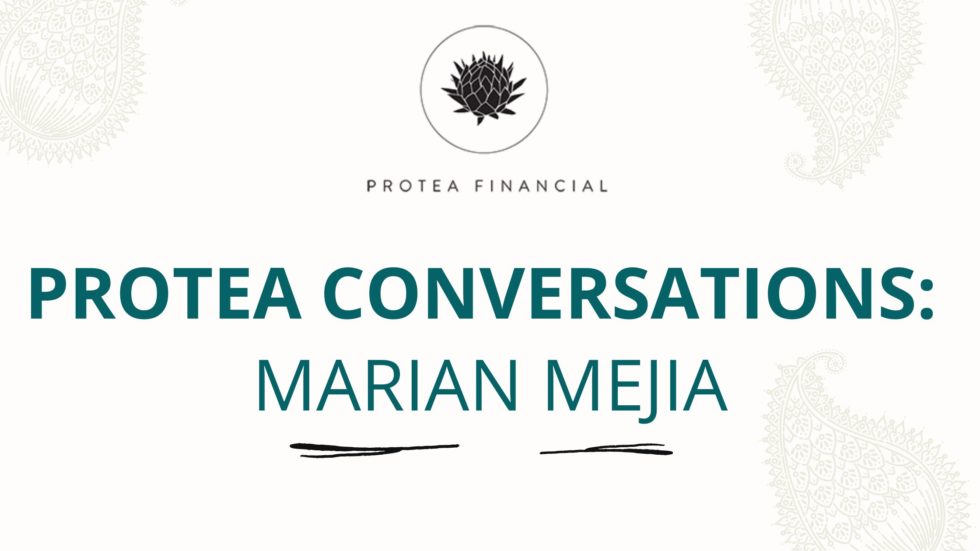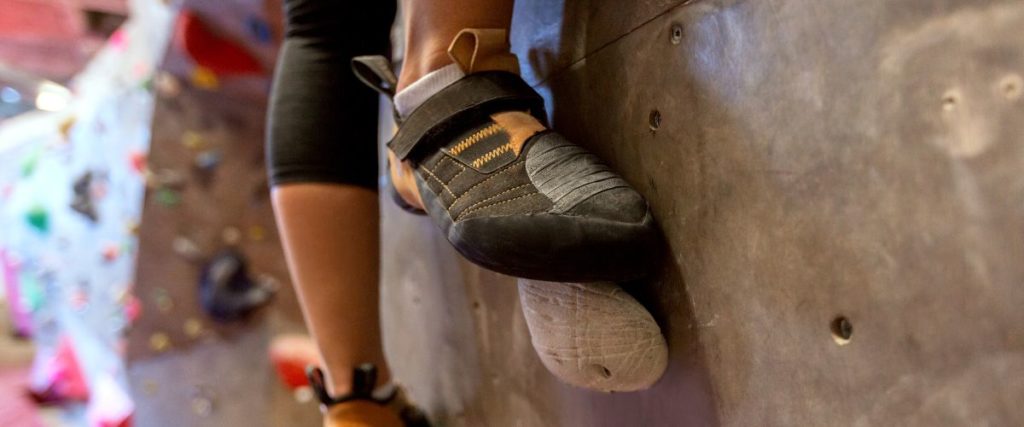Protea Financial was founded in 2014 to provide high-quality outsourced accounting at an affordable price. Given Protea’s flexible work environment, the Company especially appealed to accountants who wanted to re-enter the workforce after taking time off to start a family. This allowed Protea to attract extremely talented individuals who were previously overlooked. Protea strives to represent people from all backgrounds and provide an environment for them to grow and succeed in a setting that provides the flexibility and acceptance of who they are as people.
We selected the name Protea because is the national flower of South Africa and is a symbol of our connection. The Protea flower has become an ornamental flower because of this striking beauty and is included in arrangements and bouquets as a symbol of courage or daring to be better or a sign of positive transformation.
Protea Conversations in 2022 will focus on positive transformation and representation from all backgrounds. We are broadening our Conversations with the hope that these conversations will continue to create a forum to discuss the experiences, opportunities, and challenges leaders face, and how we can build a more diverse, inclusive, and successful environment for everyone.
In September 2022, we spend time with Marian Mejia, the Operations Coordinator of Positive Images. Positive Images is a grassroots nonprofit organization serving Sonoma County since 1990. This LGBTQIA+ Community Center hosts multiple weekly support groups, a youth leadership development program, mentorship opportunities, an LGBTQIA+ Library, a resource and referral station, and a Transformation Station – a free, lightly-used clothing closet. They are proud to offer a warm, welcoming, and affirming environment for people of all ages to explore their individual identities, develop leadership skills, and contribute to our collective community. Positive Images staff lead LGBTQIA+ Cultural Competency Trainings and presentations that educate the greater community focusing on human connection, compassion, and inclusion. The vision is a Sonoma County where all LGBTQIA+ people are valued, compassionate community members, creating a just society.
Marian (she/they) is a queer Filipino person who grew up in the South and East Bay Area before moving to Sonoma County for school in 2017. Their passions grew in their time in college, primarily focused on intersectionality in the climate and environmental justice space.
In 2019, she began canvassing in Santa Rosa to advocate for immigrants’ rights and justice, housing, and environmental justice. This experience deepened their understanding and perspective on community, access, equity, and the environment in the city.
Guided by their love for earth, community, creativity, and addressing the intersections of the issues that unite us, Marian is excited to offer and expand their skills with Positive Images. Since beginning to work with PI in 2021, they’re hoping to use their passions related to identity and culture to foster more belonging and community for all of Sonoma County’s LGBTQIA+ people. Marian is also on a continuous journey to embody the authenticity and mentorship they wished they had when they were young. Ultimately, their goal is to help uplift Black, Indigenous, and non-white voices while bridging seemingly disparate issues together to cultivate more substantial equity and solidarity.
When not at Positive Images, Marian works as Global Crew Director for Earth Guardians, dancing in heels, spending time outside, making art, or watching anime.
Tell us a little more about your decision to start a career in the nonprofit world.
I think I always knew since I was a kid that a traditional office desk job or corporate setting wasn’t for me. Or I knew it wasn’t the way I wanted to connect with people and change the world. When I was in college at Sonoma State, I was an environmental student and active student leader, and I remember making the conscious decision that I wanted to work in the nonprofit space, and that’s how I would answer whenever asked, “What do you want to do after you graduate?”
It was a mix of my lived experiences, inspired by people who worked in nonprofits and visited my classes. The pull to be a part of forwarding meaningful cultural and social shifts towards collective liberation. And so, the avenue that felt best for me to contribute to that effort was to be on the ground, working with an organization that is trusted and making a genuine impact in the community, by and for the community.
Tell us about your role with Positive Images and how you got involved.
I’m the Operations Coordinator for Positive Images, and I lead our community center operations, maintaining center and program functionality. This includes being the first person to meet and greet people who visit the center, fielding phone calls, emails, and other incoming communications to share appropriate resources and referrals, and maintaining center and program data entry, analysis, and reporting. I also oversee the organization’s communications, designing social media graphics and developing PI’s other public-facing communications.
I’ve known about Positive Images since college, and from 2020-2021 I was out of work because of the pandemic. I saw that PI was hiring on Instagram and felt immediately called to apply. Even though my prior studies and work experience weren’t overtly related to the LGBTQIA+ community, as a queer person who believes in intersectional thinking and approaches, I was excited to gain new experiences and contribute to the mental health space while uplifting Sonoma County’s LGBTQIA+ communities.
Why is Positive Images important to you?
I didn’t grow up going to or knowing of a space like Positive Images, and especially didn’t grow up with a positive (no pun intended) representation of a brown queer Filipino person. Positive Images is healing for me, for the part that wasn’t able to step into my authentic identity as a kid, and for the part of me that wants to become the adult representation or role model I didn’t have.
I know and see how important Positive Images is–how essential it is–to Sonoma County’s queer and trans community, and how can that not be important to me too?
What has been the biggest challenge you have experienced in reaching your current success (personally and professionally)?
To put it plainly, this work can be hard emotionally and mentally.
Who I am in and outside of work doesn’t change, and in this work, I’m showing up as my whole self just as those seeking services come to us to be their whole selves. It can be heavy supporting the community through trauma while also holding your own, especially when you may be a queer and/or trans person’s last call to find what they need–like housing–and there is nothing you can do to help or meaningfully meet that need.
At times it can be discouraging when I’m reminded of the realities of systemic oppressions that infiltrate our work and cause barriers to serving our community in the ways that we know they need and want. And I’m grateful to be a part of a team who acknowledges that and is dedicated to supporting our community while holding space to process and maintain a healthy relationship in this work.
What are the short-term goals for your career and yourself?
One of my short-term goals for Positive Images is to develop our organization’s communications more by launching a newsletter, redesigning our website, and increasing youth involvement in our social media and communications. My hope is to foster a space where youth and adults in our community can uplift their stories, connect with others, and feel agency in helping shape Positive Images’ own identity and ongoing story. As I look towards this goal, I am simultaneously looking towards refinding my voice after experiencing the peaks of a pandemic and how I want to use it in pursuit for collective liberation.
What is the best piece of advice you have ever received that has helped you in your success?
Rest is productive. When I first heard this phrase from a then advisor to a now dear friend, it blew my mind. Only three words and had never heard or seen them in a sentence together—or even fathomed it a perspective to have. But it was and is such a revolutionary idea to me. It’s a simple three-word sentence that entirely challenges our conditioned ideas of our worth tied to our productivity. It’s a simple three-word sentence that, to this day, is a reminder and affirmation that makes even the hardest days achievable.
What is the piece of advice that you wished you had gotten when you were starting out on your career?
I wish that someone told me of “red flags” or things to avoid in a nonprofit organization. I’ve learned in my journey so far not every nonprofit environment has a work culture that is healthy and acknowledges the realness of burnout or actively works to prevent burnout amongst its team. I’m grateful to work with an organization like Positive Images, where it feels welcomed and encouraged for staff to prioritize their mental health and allow space to candidly talk about it as well.
What advice would you give to others to help them be better leaders?
Being a better leader starts with the willingness to look inward to better oneself as a whole person. Do not be afraid to fail or to be held accountable. It’s okay to be imperfect and not know the answers to everything—because you are only human.
Deeply listen; you will grow further as a leader, knowing and being open to the fact that you will always be learning from your community and that you are a steward of knowledge, skill, or experience passed down to you. You are not a leader without your community; remember you are there to support them and their needs, as well as shoulder hardships together. Lead with compassion, gentleness, and radical love for yourself, just as much as with others.
Can you share something interesting about yourself that will provide insight into who you are outside of the professional space?
Although this part of my life journey didn’t start until I was 14 years old, movement has been a significant part of my life.
I wrestled and was in Cologuard throughout high school, trained Brazilian Jiu Jitsu and was an avid rock climber in college, and now have proudly claimed my identity as a dancer over the last couple of years. My dance experience also started in high school through color guard and marching band, and dancing in our school’s production of “Chicago.” But it was during the pandemic that I found heels dance and have been on a dance team for over a year. I’m grateful for how dance caused me to start to look inward at my gender identity, and how healing it has been to reconnect with my body and lean into my curiosity and wonder in this exploration. I also like to explore and play with art! I’ve punch needled a rug, and I’m currently working on a screen print design with a friend.
*****
As a thank you to our interview and Protea’s commitment to more diverse and inclusive leaders, Protea will donate to Positive Images (https://www.posimages.org/). Positive Images is a grassroots nonprofit organization serving Sonoma County since 1990. Their LGBTQIA+ Community Center hosts multiple weekly support groups, a youth leadership development program, mentorship opportunities, an LGBTQIA+ Library, resource and referral station, and a Transformation Station. They proudly offer a warm, welcoming, and affirming environment for young people to explore their individual identities, develop leadership skills, and contribute to our collective community. Positive Images staff lead LGBTQIA+ Cultural Competency Trainings and presentations that educate the greater community focusing on human connection, compassion, and inclusion. Their goal is a community where all LGBTQIA+ people are valued, compassionate community members, creating a just society.
Grow your network by connecting with the amazing companies and individuals we speak with in our Protea Conversations. If you need help finding the right fit, contact us here! We will do our best to help.





